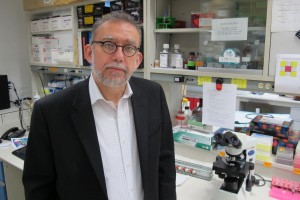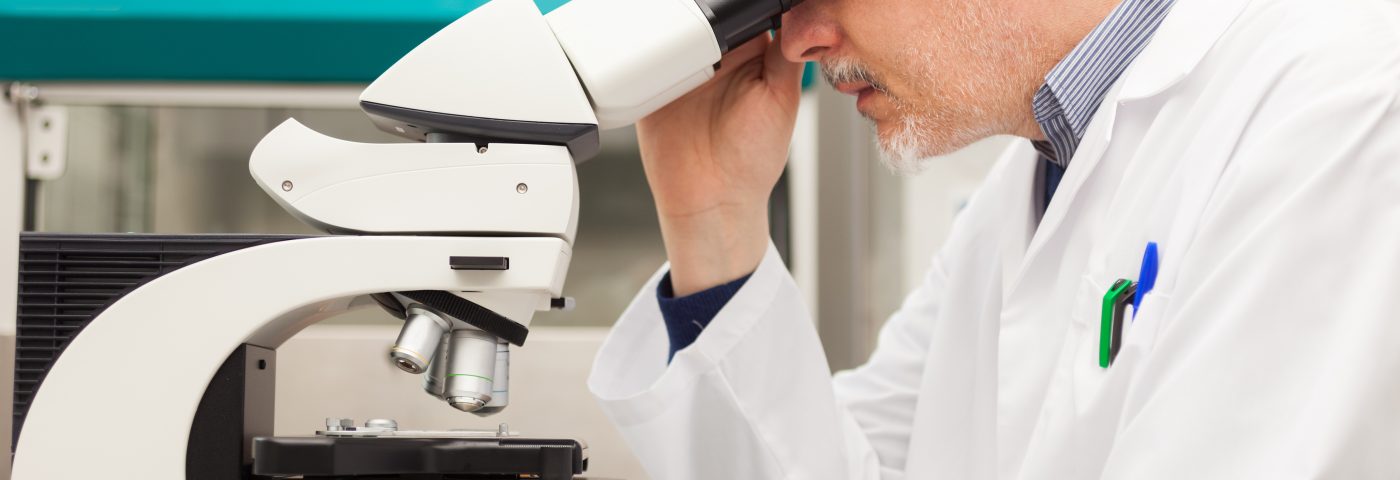The research work of Canadian allergist and asthma researcher Harissios Vliagoftis will be funded through 2020 by $1.3 million in partnership funding from GlaxoSmithKline (GSK), the Canadian Institutes of Health Research (CIHR), and the University of Alberta, where he works and has his lab.
As the newly appointed GSK-CIHR Chair in Airway Inflammation, Vliagoftis hopes to one day see his goal of a future without asthma.
“GSK recognizes the importance of investing in strong science and innovation and we are committed to making significant contributions to pre-clinical, clinical, and medical research and development,” said Amyn Sayani, GSK’s director of Research and Development Alliances, in a press release. “Our partnerships with CIHR and other Canadian academic institutions are an important mechanism by which we are able to identify promising new science from investigators in Canada, which is recognized for its leadership in a number of therapy areas.”
Asthma, sometimes considered a prelude to chronic obstructive pulmonary disease (COPD), can trigger some of the most frightening experiences for patients, such as suddenly being unable to breathe. According to the World Health Organization, it is estimated that asthma affects 5 to 10 percent of the world population, nearly 23.4 million people, including 7 million children. In Canada, it is estimated that 2.4 million people are affected by the disease.
“Dr. Vliagoftis has shown true leadership in the area of respiratory disease in Alberta over many years,” said Dr. Brian Rowe, the scientific director of CIHR Institute of Circulatory and Respiratory Health. “His research holds the promise of specialized treatment for patients with asthma, minimizing discomfort and side effects. I will be following his progress with great interest and want to congratulate him on this career milestone.”

Vliagoftis is also a professor of medicine, dedicated to the study of a receptor called protease-activated receptor 2 (PAR2) – a biomarker that is more prevalent on cells in the airways of someone who suffers from asthma than healthy individuals. The receptor is also found in significantly higher levels on cells that circulate in the peripheral blood in patients with more severe forms of the disease. Vliagoftis believes the study of this receptor will potentially help to develop more effective treatments.
“My hope is that by measuring PAR2, we can help indicate the severity of patients’ asthma and, more importantly, provide insight into the most effective treatment option,” Vliagoftis said. “Biomarkers are of great interest for the research community these days, especially as we delve into personalized medicine, where a new drug may not be right for everybody with the disease.”
“Dr. Vliagoftis is an outstanding example of a true translational scientist. He has an active clinical practice focusing on asthma patients, which has led him to develop a set of important hypotheses on the causative factors in the initiation of the asthma response,” said David Evans, the University of Alberta’s vice-dean of research for the Faculty of Medicine and Dentistry. “He is investigating these factors as part of his chairmanship and I look forward to the outcomes of his research. I’m confident he will continue to make important contributions to improving the management of asthma.”

